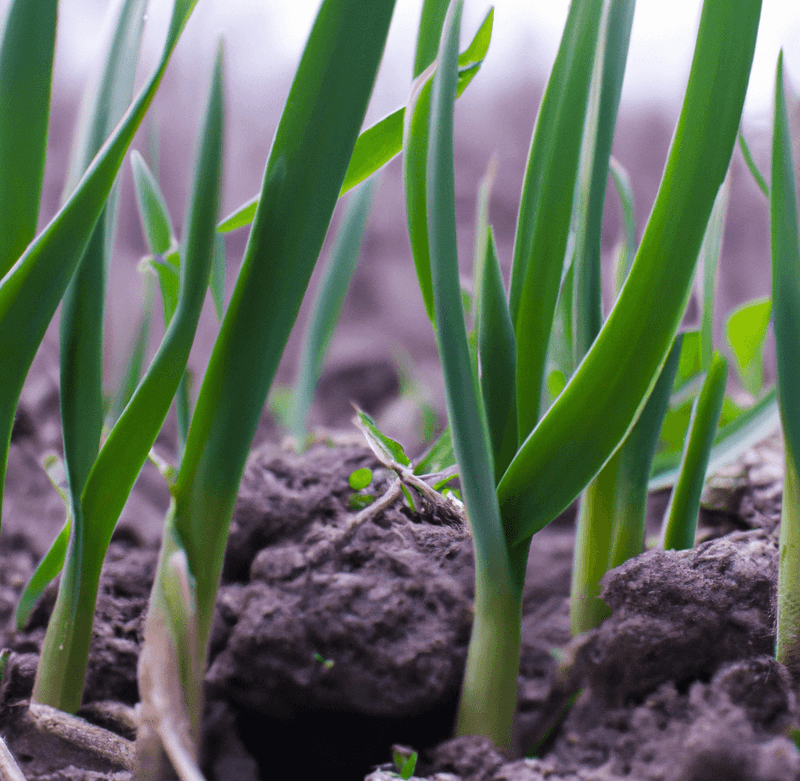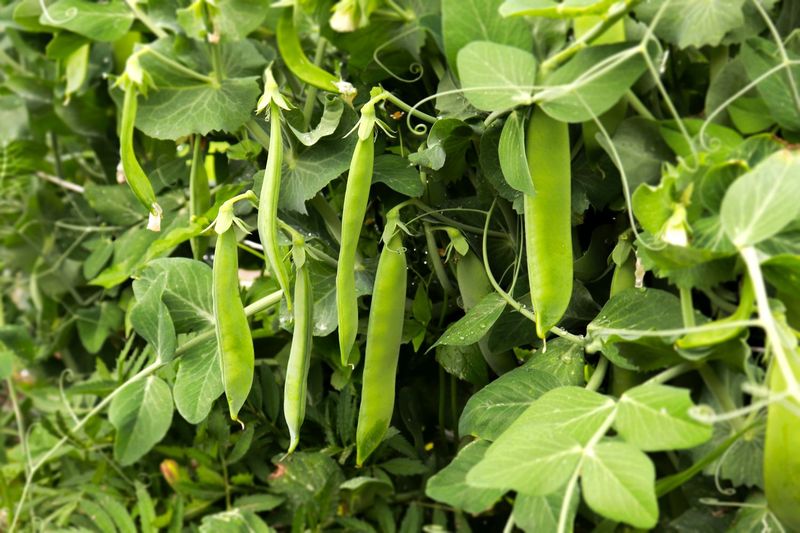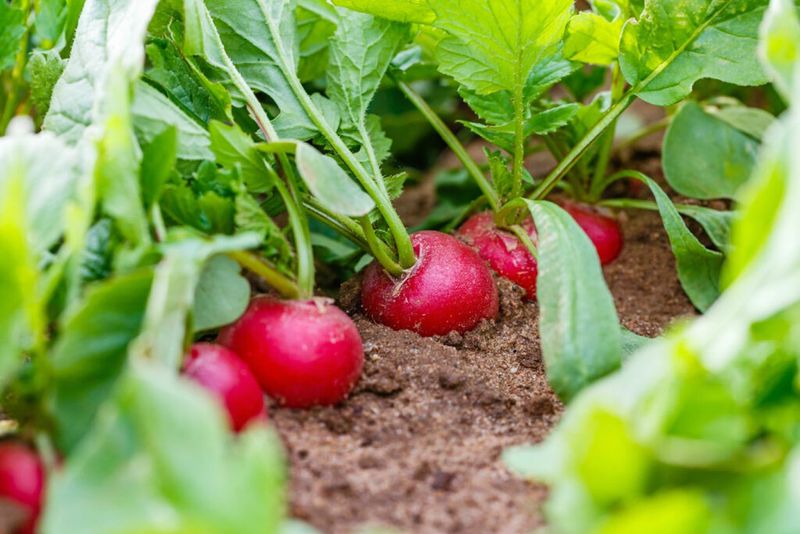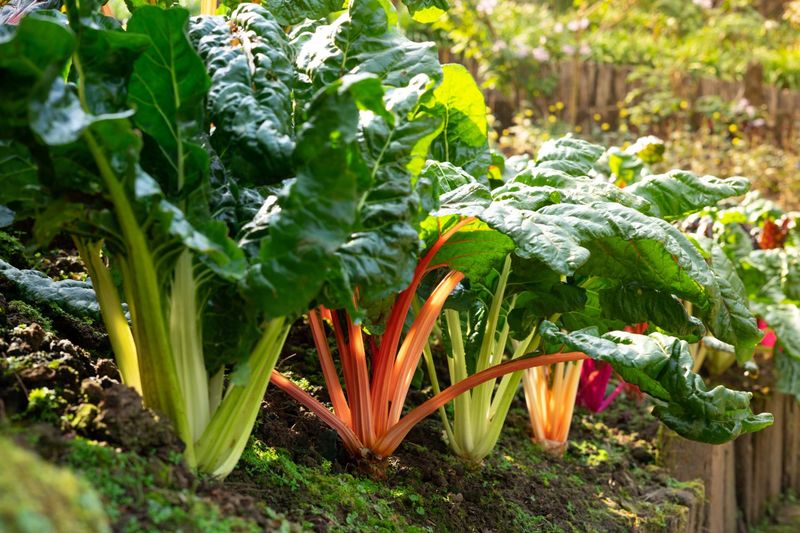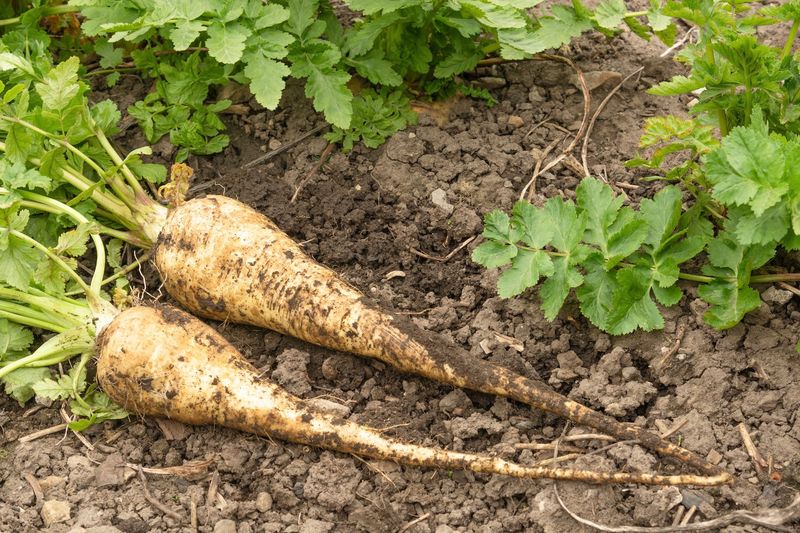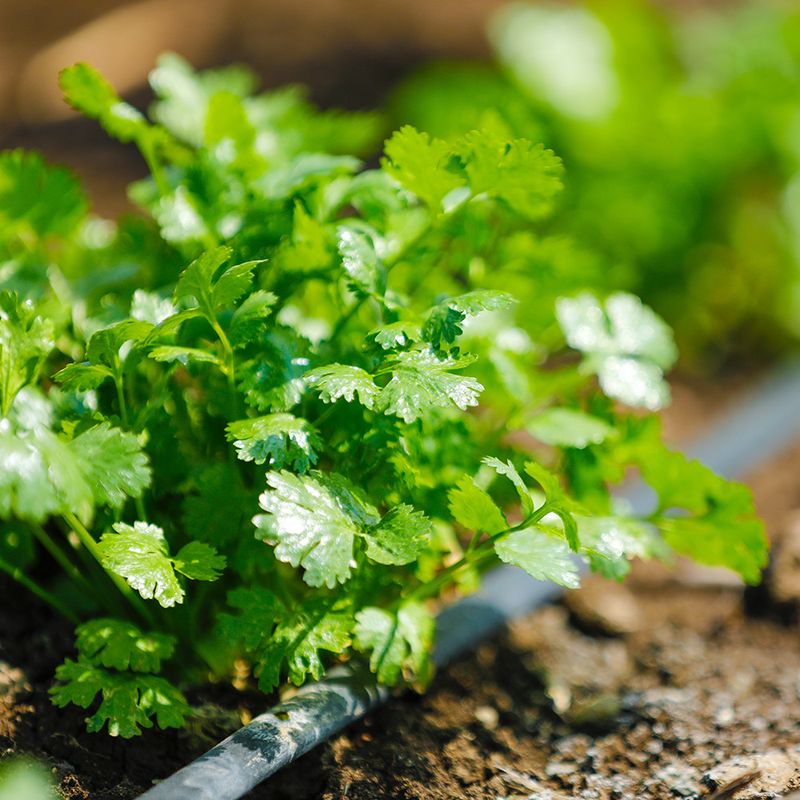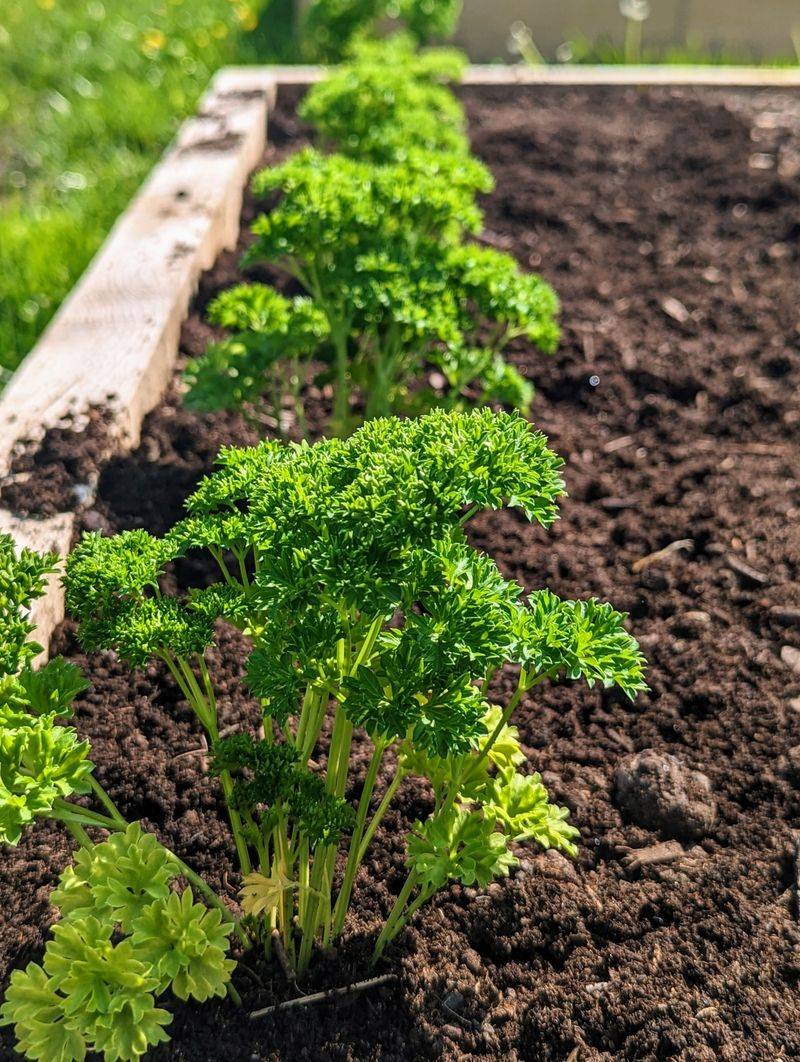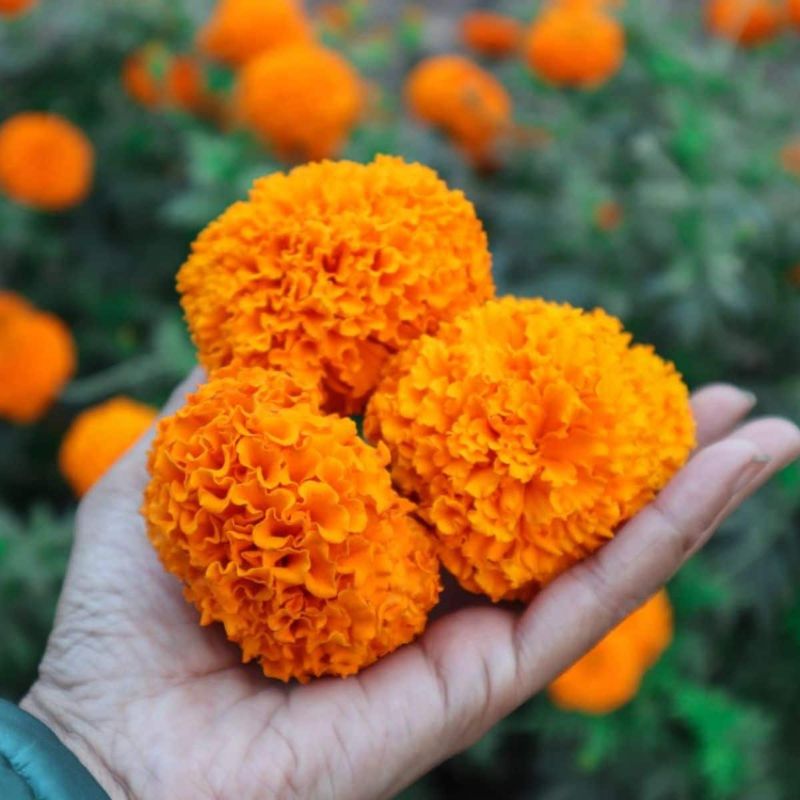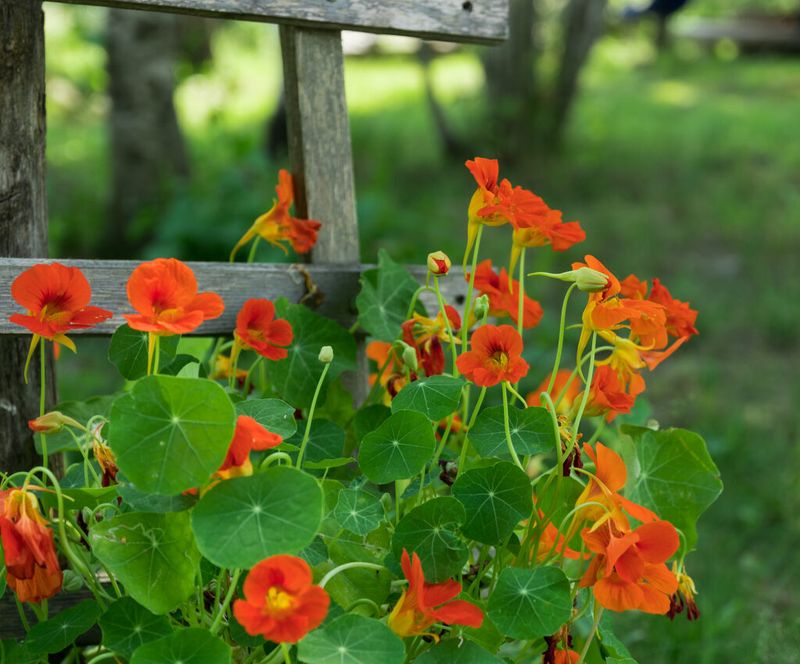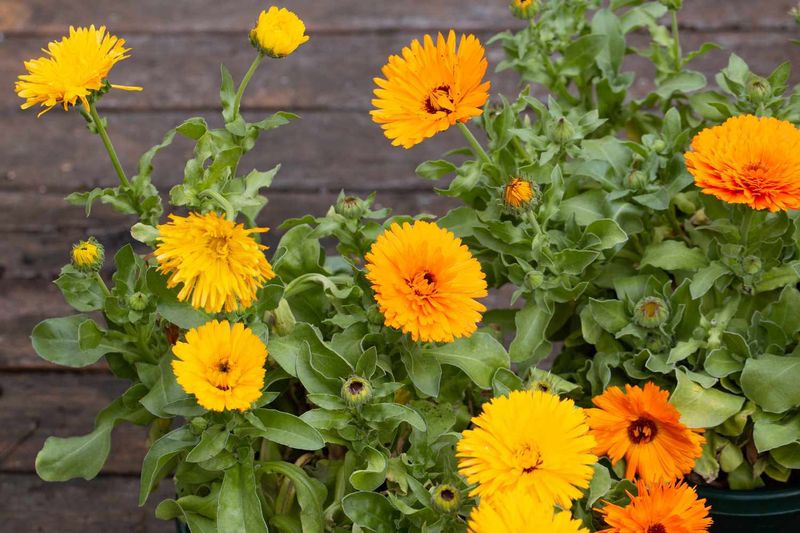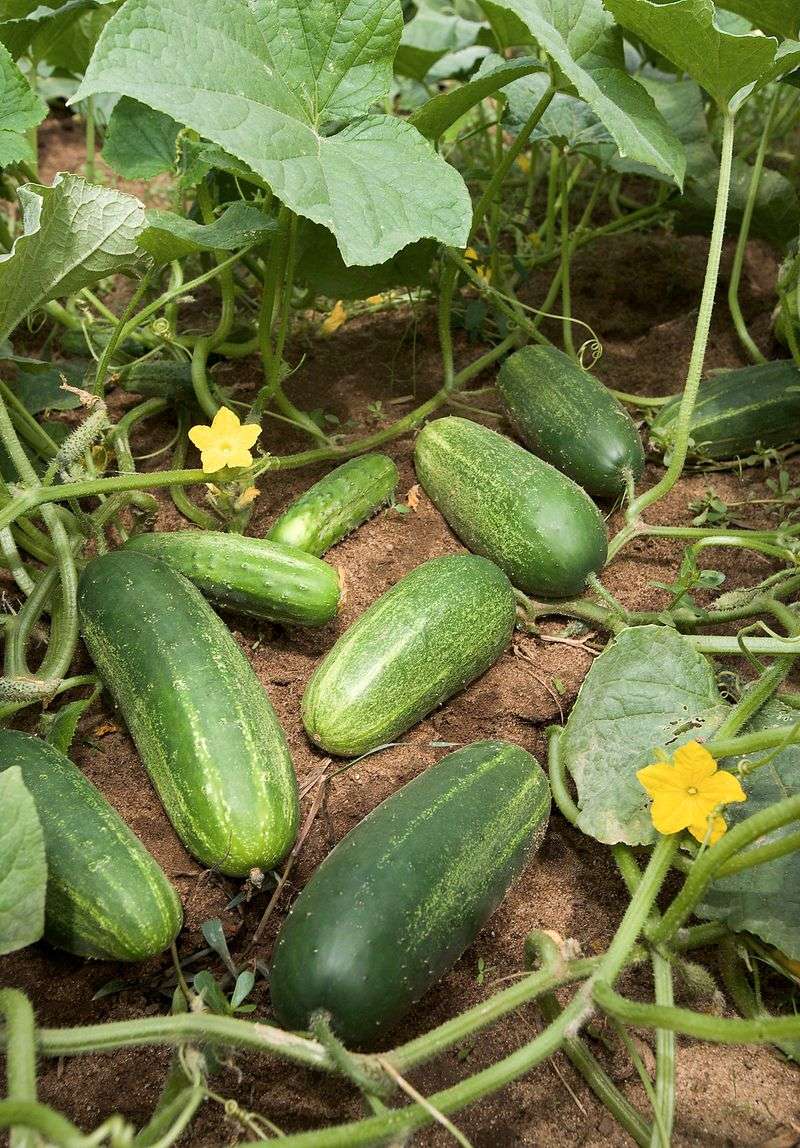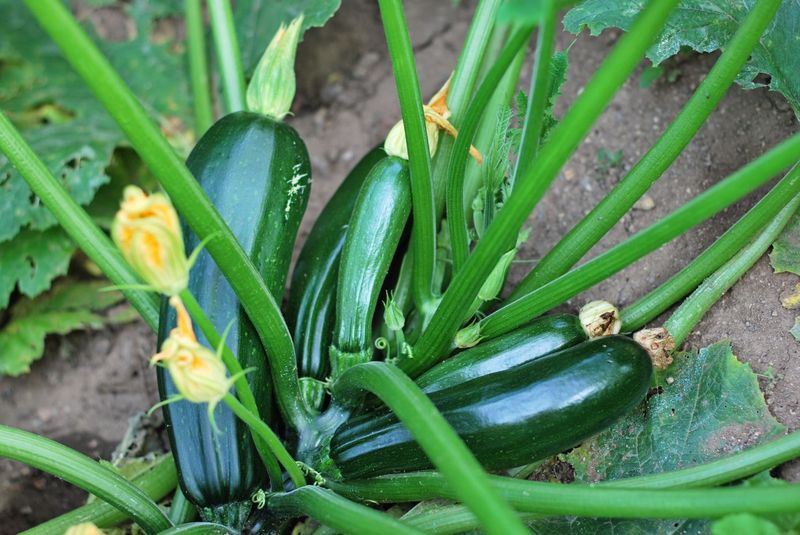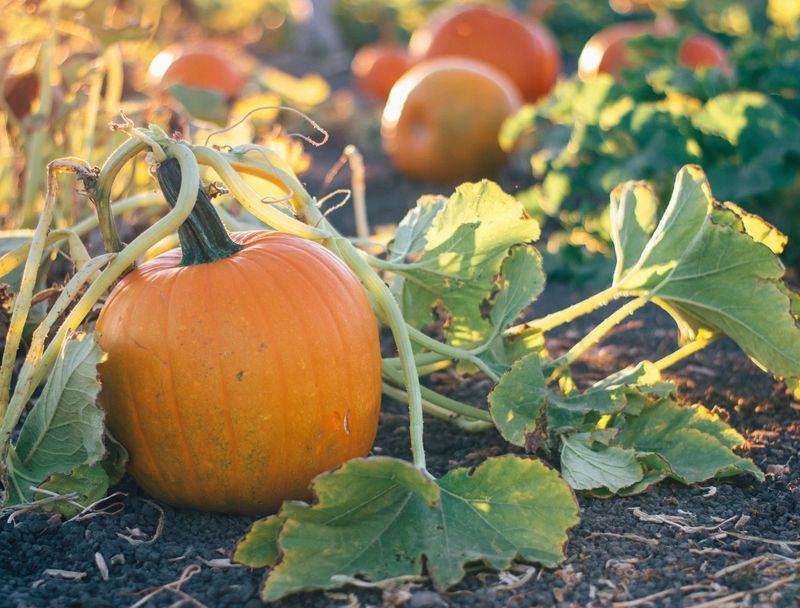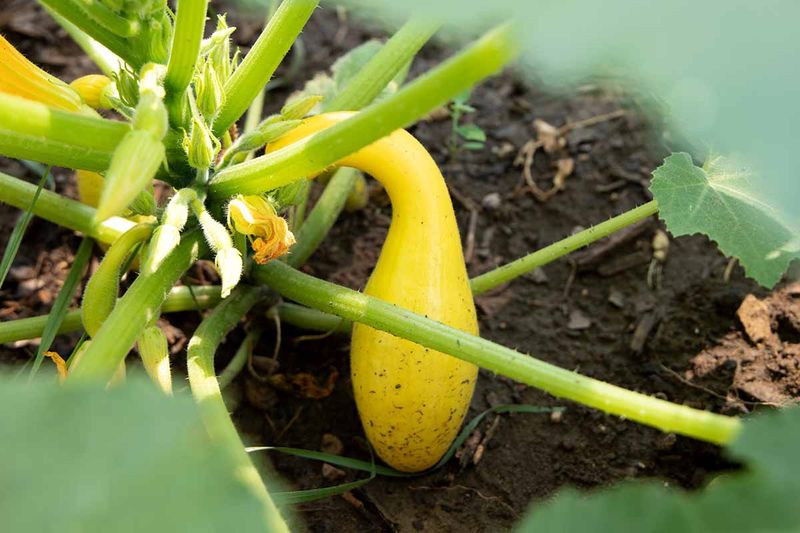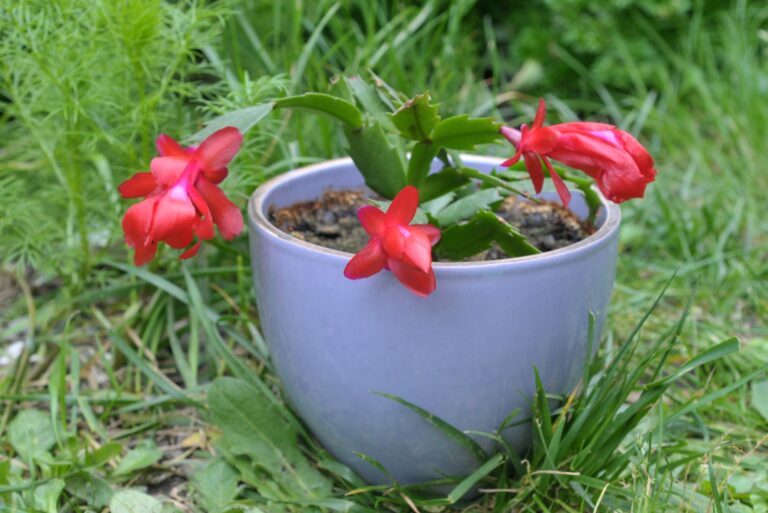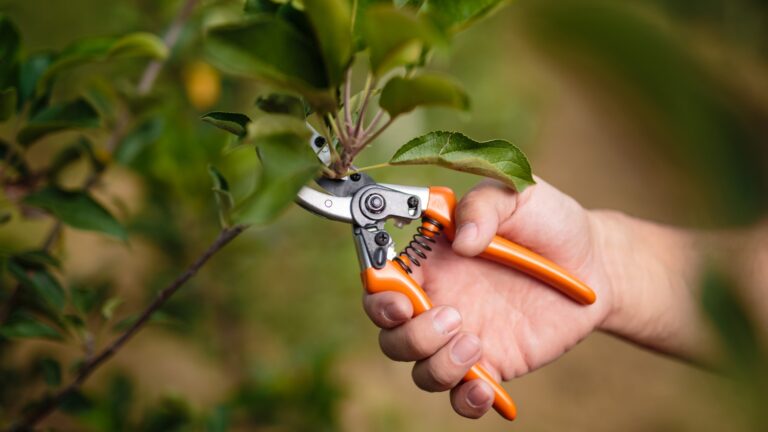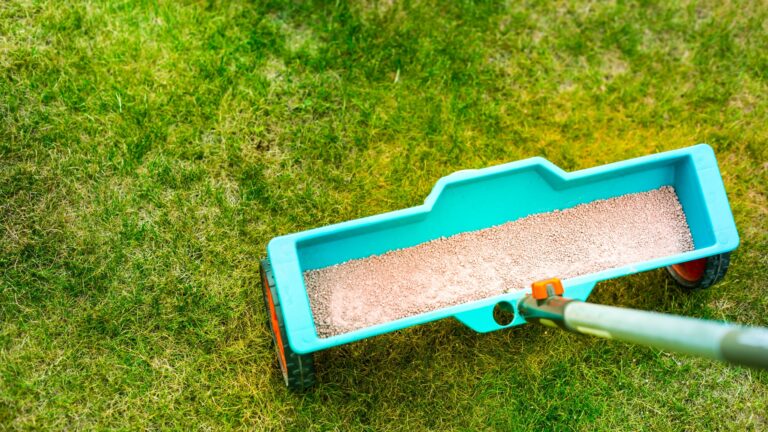29 Companion Vegetables That’ll Keep Your Citrus Tree’s Soil In Tip-Top Shape

I’ve seen firsthand in my garden how the right vegetables can do wonders for citrus trees. These 29 companions don’t just sit pretty; they share nutrients, fight off pests, and even improve soil quality.
It’s like a team effort where everyone plays a part in making sure the citrus tree thrives. I’ve found that certain veggies even seem to “talk” to the trees, coaxing out their best fruits.
Some companions might even surprise you, and I’ve learned that the garden often rewards the unexpected! You might just discover your new garden best friends!
1. Carrots
Beneath the citrus canopy, slender roots perform a magical dance underground. Carrots, with their deep-reaching roots, excel at breaking up compact soil, making them an ideal companion.
Burrowing down, they help improve aeration and drainage, creating a hospitable environment for citrus roots. In addition, carrots deter pests that might otherwise take a liking to your citrus tree.
It’s a win-win situation as these veggies bring their own flavor to the garden, ensuring your citrus trees remain lush and productive.
2. Onions
I’ll never forget planting onions near my citrus trees for the first time. I was amazed at how the onions naturally deterred pests with their sulfur compounds.
Not only did they protect the trees, but they also helped loosen the soil, making it easier for my citrus roots to thrive.
It was like having a quiet, hard-working partner in the garden. Now, I always plant onions next to my citrus. They’re the perfect natural ally and add a fresh bonus to my kitchen too!
3. Garlic
Tucked away in the garden, there lies a pungent protector. Garlic stands as a powerful companion, warding off a host of harmful insects with its naturally strong aroma.
Not only does it act as a deterrent, but garlic also enhances soil structure, making it easier for citrus roots to spread.
As it matures, it enriches the soil with vital nutrients, giving your citrus the boost they need. Garlic is more than just a spice for your kitchen; it’s a guardian for your citrus grove.
4. Beans
Imagine a team of nutrient enhancers working in harmony with your citrus. Beans, with their nitrogen-fixing abilities, enrich the soil, providing essential nutrients that citrus trees thrive on.
Their upright growth habit ensures they don’t compete for root space, making them perfect partners. These legumes not only feed the soil but also bring a sense of vitality to the garden.
With beans around, your citrus trees will feel supported and ready to produce succulent fruits, adding both beauty and bounty to your landscape.
5. Peas
In the realm of garden allies, some companions offer more than just company. Peas, with their nitrogen-fixing prowess, naturally enrich the soil, giving citrus trees the nutrients they crave.
Their tendrils reach and climb, needing minimal ground space, which allows them to coexist happily with citrus roots. By adding peas to your garden, you’re inviting a balance that strengthens both plants. T
heir presence is a testament to the power of cooperation, where the success of one leads to the benefit of another.
6. Lettuce
In the cool shade of citrus leaves, a leafy undergrowth thrives without fuss. Lettuce, with its shallow root system, grows contentedly without disturbing the citrus roots, making it an ideal groundcover.
Its presence helps to retain moisture in the soil, reducing the need for frequent watering and keeping citrus trees hydrated.
Plus, lettuce acts as a living mulch, suppressing weeds that compete for nutrients. This leafy friend not only complements the citrus but also brings freshness to your garden salads.
7. Radishes
There’s a plucky little root that isn’t afraid to get its hands dirty. Radishes are quick to mature, loosening and aerating the soil as they grow, which benefits nearby citrus roots.
By breaking up the earth, they make room for water and nutrients to reach the citrus. Radishes also repel certain pests, providing a natural defense for your garden.
As they thrive in the citrus shade, they prove that sometimes, the smallest companions can make the biggest impact on soil health.
8. Spinach
Nestled under the citrus’s protective boughs, this leafy green finds its happy place. Spinach grows quickly and requires little space, making it an excellent companion.
Its broad leaves shade the soil, preserving moisture and discouraging weed growth. As a bonus, spinach adds organic matter back into the soil when it decomposes.
Growing spinach with citrus trees ensures a continuous cycle of nourishment, allowing both to flourish. Plus, you’ll have a steady supply of greens for your kitchen!
9. Chard
Amidst the garden beds, a colorful contender adds both beauty and function. Chard not only brightens the landscape but also serves a practical purpose.
It grows robustly, offering shade to the soil beneath, which conserves moisture and reduces evaporation. Chard’s deep roots draw up nutrients, making them available for citrus trees.
This veggie adds diversity to your garden while supporting the health of your citrus. It’s a partnership where everyone benefits, both nutritionally and aesthetically.
10. Beets
In the earthy heart of your garden, a root vegetable quietly works its magic. Beets, with their nutrient-rich leaves and roots, enhance soil fertility and structure, benefiting nearby citrus trees.
As they grow, they help to aerate the soil, improving water and nutrient penetration. Beets also act as a traditional companion, providing a natural deterrent to certain pests.
By cultivating beets around your citrus trees, you’re fostering a thriving ecosystem where both plants can reach their full potential.
11. Parsnips
Beneath the surface, a root vegetable unassumingly contributes to a healthier garden environment. Parsnips work diligently to break up heavy soils, enhancing drainage and aeration for citrus trees.
Their growth improves soil structure, which aids in the efficient uptake of water and nutrients by citrus roots. Additionally, parsnips deter soil-borne pests, offering protection to your garden.
Incorporating parsnips into your planting scheme is a step towards a more balanced and resilient citrus-growing environment.
12. Cabbage
Amongst the leafy giants, you’ll find a steadfast ally in the garden. Cabbage, with its broad leaves, offers shade that keeps soil temperatures stable and moisture levels consistent.
This companionship is especially beneficial for citrus trees during hot weather. Cabbage also secretes natural chemicals that repel certain pests, contributing to a healthier garden environment.
By planting cabbage alongside your citrus, you’re not only enhancing the soil but also creating a harmonious space where both plants can flourish beautifully.
13. Tomatoes
I’ve seen firsthand how well tomatoes and citrus trees work together in my garden. The tomato vines spread out, providing ground cover that conserves moisture and keeps weeds in check.
Their roots also improve the soil structure, making it easier for my citrus tree’s roots to absorb nutrients. To top it off, tomatoes naturally repel pests, protecting both themselves and my citrus.
It’s like they’re working together in perfect harmony, ensuring a healthy garden with bountiful harvests all around.
14. Basil
In the aromatic world of herbs, one stands out as a citrus ally. Basil, with its fragrant leaves, naturally deters pests that might plague your citrus trees.
Its presence in the garden also attracts pollinators, enhancing fruit production for both basil and citrus. The roots of basil make it a non-competitive companion, allowing citrus roots to thrive undisturbed.
Planting basil near your citrus trees creates a fragrant and productive garden, where every leaf and fruit contributes to the overall harmony.
15. Cilantro
There’s a zesty herb that doesn’t just spice up your salsa. Cilantro not only brings a burst of flavor but also offers protective benefits to citrus trees.
Its strong scent wards off harmful insects, acting as a natural pest shield. Additionally, cilantro’s short lifecycle adds organic matter back to the soil as it decomposes.
By planting cilantro around citrus trees, you’re boosting soil fertility and creating a more resilient garden. It’s a win-win for any gardener looking to enhance their citrus grove.
16. Dill
Amidst the garden’s aromatic offerings, this feathery herb stands tall. Dill, with its delicate fronds, attracts beneficial insects that help control pest populations near citrus trees.
Its unique chemistry also repels pests that might damage your citrus leaves. Dill’s ability to enhance soil structure makes it a valuable companion, contributing to the overall health of your citrus grove.
By planting dill nearby, you’re inviting a natural harmony into your garden, where both dill and citrus can thrive side by side.
17. Marigolds
I’ve always loved having marigolds in my garden, especially near my citrus trees. Not only do their bright, cheerful blooms add color, but they also work hard to protect my trees.
Marigolds release compounds that repel harmful pests like nematodes, and their flowers attract beneficial insects that help with natural pest control.
I’ve noticed how the soil around them seems healthier too, with more nutrients available for my citrus trees. It’s a perfect balance of beauty and practicality.
18. Nasturtiums
Amidst the garden’s colorful array, a certain flower stands ready to lend a hand. Nasturtiums serve as a living mulch, suppressing weeds and conserving soil moisture for citrus trees.
They also act as a trap crop, attracting aphids away from your citrus. This dual function makes nasturtiums a valuable addition to any citrus grove.
Nasturtiums add a splash of color and a layer of protection that benefits both the aesthetics and health of your garden.
19. Calendula
I’ve found that adding calendula, or pot marigold, to my citrus garden has been a game changer. Not only do they attract pollinators and beneficial insects, but also boost fruit set on my citrus trees.
The scent of calendula helps keep some pests at bay, and its roots secrete compounds that improve the soil’s nutrient levels. It’s a win-win, creating a cheerful garden that’s teeming with life.
Calendula is a perfect companion that supports both my plants and the pollinators, making my citrus garden thrive!
20. Thyme
Tucked beneath a citrus canopy, an aromatic herb quietly works its wonders. Thyme, with its creeping growth, acts as a living mulch, conserving soil moisture and suppressing weeds.
Its pungent aroma naturally repels certain pests, offering protection to citrus leaves. Thyme’s compact growth habit ensures it won’t compete for root space, making it an ideal citrus companion.
With thyme you’re creating a functional garden layer that supports both soil health and the overall vitality of your citrus trees.
21. Mint
In the cool shade of a citrus tree, a refreshing herb takes root. Mint, known for its vigorous growth, can act as a ground cover, helping to reduce soil erosion and retain moisture.
Its strong aroma deters pests, providing a natural shield for your citrus trees. However, mint’s growth can be invasive, so it’s best planted in pots or controlled areas near citrus.
Despite its wild nature, mint adds a refreshing presence to the garden, where its benefits enhance the health and flavor of your citrus grove.
22. Sage
Amidst the herbal companions, a wise old plant offers its guardianship. Sage, with its silvery leaves, repels pests while enhancing the garden’s aroma.
Its presence attracts pollinators, which is beneficial for citrus fruit set. Sage’s deep roots help improve soil structure, allowing citrus roots to access water and nutrients more effectively.
By incorporating sage into your garden, you’re inviting a protective and aromatic ally that supports the vitality of your citrus trees. It’s a harmonious blend of fragrance and function.
23. Parsley
I’ve found parsley can also be an unexpected hero in the citrus garden. Its curly leaves not only add a fresh touch, but they also help keep harmful pests away.
The deep roots of parsley aerate the soil, improving nutrient uptake for my citrus trees. Plus, it attracts beneficial insects, which adds to the biodiversity of my garden.
Planting parsley near my citrus has been a simple yet effective way to create a protective and flavorful environment, where both plants thrive together. It’s the perfect balance of practicality and flavor!
24. Oregano
In the culinary corner of the garden, this herb offers more than just flavor. Oregano, with its robust growth and aromatic leaves, repels pests that might threaten citrus trees.
It thrives in dry soil, helping to prevent unwanted moisture accumulation around citrus roots. Oregano also attracts pollinators, which benefit citrus fruit production.
By incorporating oregano into your citrus grove, you’re creating a resilient and aromatic environment where both plants can flourish. It’s a partnership that enhances both flavor and garden health.
25. Chamomile
In the tranquil garden setting, a calming bloom provides unexpected benefits. Chamomile, with its delicate flowers, attracts beneficial insects while improving soil health.
Its roots help to loosen compacted soil, allowing citrus trees better access to water and nutrients. Chamomile’s presence can also suppress disease, offering a gentle form of protection for your citrus.
Chamomile is fostering a peaceful and productive garden atmosphere, where the harmony between plants leads to thriving growth and abundant citrus harvests.
26. Cucumbers
In the sprawling expanse of the garden, vining plants create a lush backdrop. Cucumbers, with their climbing habit, provide shade that cools the soil, benefiting citrus roots on hot days.
Their presence also helps suppress weeds, reducing competition for resources. Cucumbers contribute to a balanced garden ecosystem, fostering an environment where citrus trees can thrive.
By growing cucumbers alongside your citrus, you’re encouraging a partnership that enhances both visual appeal and garden productivity.
27. Zucchini
In the garden’s diverse landscape, a hardy squash plant lends its support. Zucchini provides ground cover that conserves moisture and suppresses weeds for citrus trees.
Its sprawling nature improves soil structure, facilitating nutrient absorption by citrus roots. Zucchini also serves as a trap crop, diverting pests away from your citrus.
By integrating zucchini into your garden, you’re establishing a cooperative relationship that benefits both plant health and productivity.
28. Pumpkins
Amid the garden’s seasonal shifts, a robust fruiting vine emerges. Pumpkins bring dual benefits with their sprawling vines that shade the ground, conserving moisture and reducing weed growth for citrus trees.
Their large leaves act as a natural mulch, enhancing soil structure and nutrient retention. Pumpkins also attract beneficial insects, supporting a diverse garden ecosystem.
By planting pumpkins near citrus, you’re embracing a fruitful partnership that enriches your garden both aesthetically and functionally.
29. Squash
Nestled within the garden’s flourishing community, a versatile plant offers its companionship. Squash provides essential shade for soil conservation, keeping citrus roots cool and hydrated.
Its growth habit helps to suppress weeds, reducing competition for nutrients. Squash also attracts pollinators, boosting fruit production for citrus trees.
If you include squash in your garden design, you’re fostering a symbiotic environment where variety and abundance go hand in hand, promoting a thriving citrus grove.



